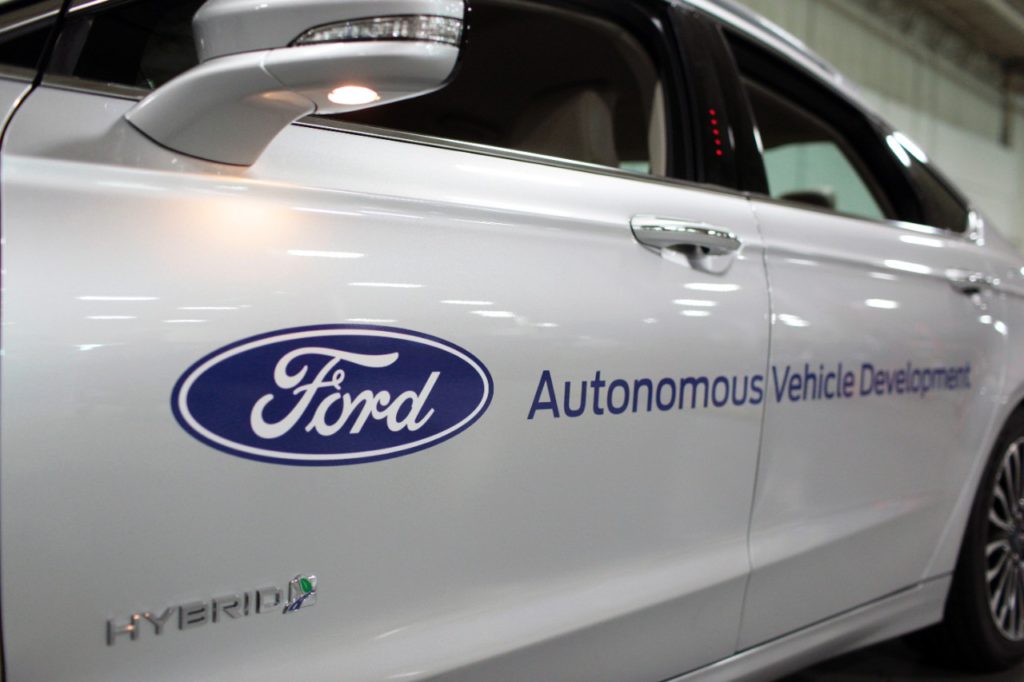Ford plans autonomous car-share scheme for launch in 2021
18 April 2018

18 April 2018
Ford is planning to develop its own autonomous car-sharing service, aiming to launch it in 2021 to transport both people and goods in cities around the globe.
The company wants to create its vehicles and service in-house, rather than sell its technology to an existing ride-hailing business. Ford bought AI startup Argo for €877 million in February last year to compete with existing providers Waymo and Uber, as well as automotive rivals in developing self-driving vehicles.
′Our current thinking is that we’ll own the fleet, that we’ll operate the fleet,’ Jim Farley, global markets president and joint-number two of the US carmaker told the Financial Times.
′One of the most important parts of the test is the business model itself,’ he said, to establish how revenue is split, how much consumers will pay for a self-driving delivery, and at what price the service is useful to customers such as logistics or delivery companies.
The carmaker plans to deliver goods as well as passengers as part of its scheme; it is already trialling a service with Domino’s Pizza, offering incentives for consumers to leave their premises and walk to a human-free delivery car. The company also plans to open its network to local small businesses to transport goods, a move that could put it directly against local courier services.
Ford will use a new vehicle powered by hybrid technology and built to operate 20 hours a day when it launches its service in 2021. It will also carry people and cargo interchangeably, suggesting a larger vehicle such as Ford’s Transit range of vans.
Ford is experimenting with mass-transit vehicles and is running Chariot bus services using modified Transit vans in London and California.
The company is working towards deploying its vehicles at scale in 2021, an ambition that would require greater testing in the coming years.
′The key message from Ford is we’re not looking just to start then [in 2021]. We’re setting up the Miami business model now so that we can scale then,’ said Mr Farley in an interview at the new Ford Focus launch in London last week.
Ride-sharing services are giving manufacturers additional options as consumers look to move away from traditional ownership models. BMW and Daimler recently merged their respective businesses DriveNow and car2go into one unit, while Jaguar has opted to supply vehicles to Waymo and Volvo is selling cars to Uber. The US company has said that eliminating the cost of paying drivers is essential for its business model in the long run.
In June 2017, Ford formed a second robotics and artificial intelligence (AI) division. With the freeing up of resources by tasking Argo (which includes some Ford staff) with the production of Ford’s first generation autonomous driving system platform, the new division will focus on emerging technologies that will surround this core new field of autonomous driving.